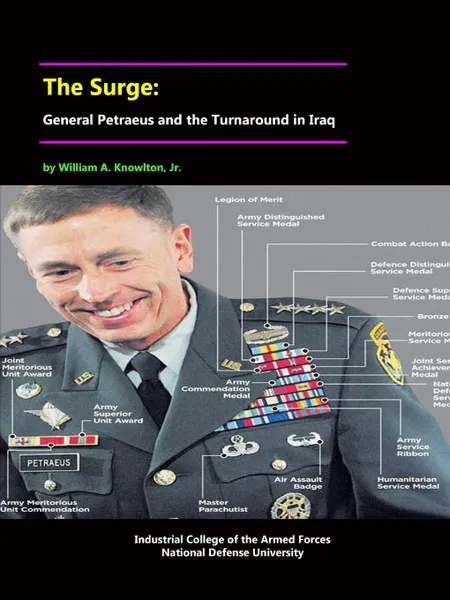The Surge. General Petraeus and the Turnaround in Iraq 12+
46 страниц
Категория: Энциклопедии, справочники
ISBN: 9781329628373
Язык: Английский
📓 When General David H. Petraeus, USA, took command of Multi-National Force-Iraq (MNF-I) on February 10, 2007, beginning his 3d tour and 28th month in Iraq, the situation was grim. Increasing sectarian violence had led to an escalation of killings of civilians in Iraq, with up to 150 corpses being found daily in Baghdad.1 The government of Prime Minister Nouri al- Maliki was viewed by almost everyone as ineffective at best, and the U.S. military strategy was not well defined and clearly not working. Iraq appeared to be sliding out of control toward civil war or disintegration, and the United States appeared to be headed inexorably toward defeat- another Vietnam. Popular sentiment held that the best course of action was to cut our losses and disengage from a fight we were losing. General George Casey, USA, the outgoing commander of MNF-I, had supported a gradual drawdown of U.S. forces and a handoff of security tasks to Iraqi forces even as the situation got worse.
Мнения
